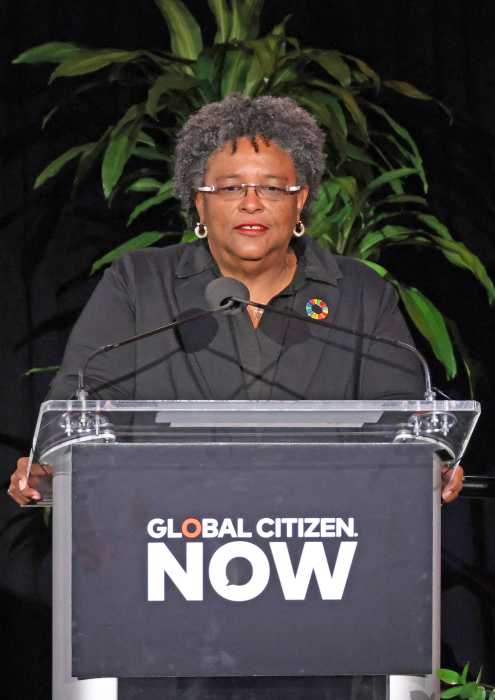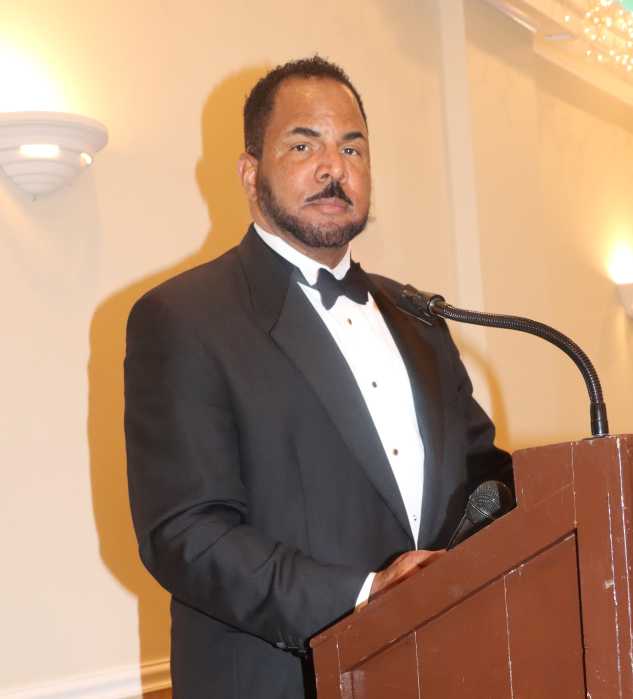Should the incumbent Barbados Prime Minister, Freundel Stuart, get his way the island would be withdrawn from the Caribbean Court of Justice soon.
With just days to go before Barbadians vote in general elections, Stuart, president of the Democratic Labour Party, appeared to be appealing to patriotism of the island’s citizens when he said that the CCJ has not only been unfair to this country but also suggested that some of the judges are political.
“I continue to be concerned as prime minister of Barbados that the attitude of some of the persons sitting in [CCJ] Port-of-Spain to Barbados, and to litigants and to the justice system in Barbados seems to be disrespectful,” he said.
He accused the regional court, which has been Barbados final decision-maker in legal appeals, of in recent times, “sweeping the floor, as it were, with lawyers from Barbados and with public officers from Barbados as though they count for nothing.”
Speaking at a political campaign meeting over the weekend, Stuart said: “the attitude coming from Port-of-Spain leaves much to be desired in terms of how it is treating Barbados.”
And in what could be interpreted as a direct attack on some CCJ judges who are garbed in robes when presiding over cases, he added, “I am not going to have Barbados disrespected by any politicians wearing robes.”
Since its formation in 2005, the CCJ has had only Barbados, Guyana, Dominica and Belize as full members though it holds jurisdiction over eight other CARICOM member territories who have signed on to it.
The eight member states that have signed on but are not full members still retain the London-based, Privy Council as their court of last resort in internal matters.
Stuart tied his planned action against the CCJ to the outcome of the May 24 elections, “once the Democratic Labour Party is re-elected into office, I am determined to put Barbados on the same level as every [of the eight] other CARICOM country [countries] by de-linking from the Caribbean Court of Justice in its appellate jurisdiction.” He made clear, however, that there is no intention of taking Barbados back to the Privy Council.
Stuart sought to make clear that his statements had nothing to do with a recent CCJ slamming of the Barbados Electoral and Boundaries Commission for denying the right to vote of Commonwealth citizens legally resident on the island for three or more years.
But with that CCJ decision being just a week before his statement, it is difficult to separate the two.
To the Barbados prime minister’s credit however, he has in the past been critical of the CCJ.
In June 2017, following Barbados having been hit by at least three reprimands in as many years from the CCJ on delays in its criminal justice system, Stuart said that he has had enough and fell just short of saying that this island is being picked upon.
In reference to the number of times that CCJ judges had reason to scold the island on its judicial delays, which attracted wide media attention, Stuart had said, “I sometimes think that Barbados is being unnecessary slandered by some of the reports which I see.”
At that time he pointed out that CCJ can make such comments of the Barbados system because this island along with Guyana, Dominica and Belize are the only ones of the 15-member CARICOM grouping that have signed on to have this Caribbean court as the jurisdiction of final appeal.
He also had much to say back in 2013 when the CCJ made its landmark ruling on the Shanique Myrie case rebuking Barbados immigration officers for their treatment of the Jamaican woman and making clear that CARICOM citizens are entitled to six-month automatic stay in any territory they visit within the grouping.
Critical of the ruling back then, Stuart had said it opened the doors of Barbados to those “not working people of ill-intent” including, “that criminal element that has been stalking the Caribbean and causing us no end of problems.”
The totality of Stuart’s comments over the years leading up to those made last weekend has probably turned the Barbados elections on Thursday into a referendum on whether the people of this island wish to remain under the jurisdiction of the CCJ.


























